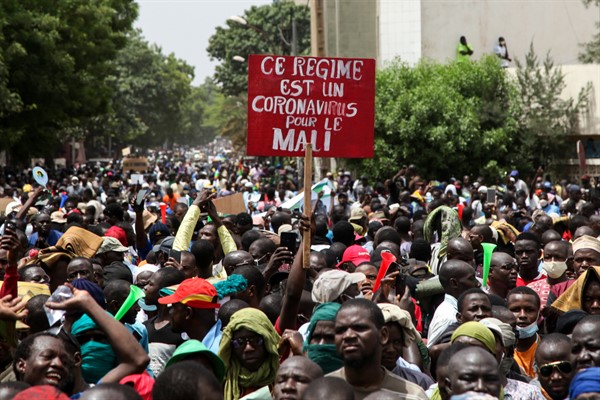In recent weeks, Mali has been beset with mass protests against President Ibrahim Boubacar Keita’s government. At times, tens of thousands of people have poured into the streets of the capital, Bamako, to demand Keita’s resignation. The protests’ organizers, calling themselves the June 5 Movement after the date of the first demonstration, have brought together opposition political parties, religious groups, civil society organizations, trade unions and even members of the police. These disparate elements of Malian society are uniting around their deep anger at entrenched poverty and unemployment, the government’s ineffectual response to the coronavirus pandemic, and the rapid deterioration of security and governance across the country as it tries to tamp down a growing jihadist insurgency.
One focal point of the protests has been Mali’s controversial Constitutional Court, which threw out some provisional returns of long-delayed legislative elections this spring, helping install members of Keita’s party. The 75-year-old Keita, who has been in power since 2013, has offered some concessions to the June 5 Movement, including the dissolution of the Constitutional Court, but they have not assuaged demonstrators’ anger. Instead, a violent crackdown by security forces—which left at least 11 people dead, although protest leaders say the real death toll is higher—have only deepened their demands for change.
In late July, the leaders of Ghana, Cote d’Ivoire, Senegal and Niger traveled to Mali to try and negotiate an end to the standoff on behalf of the Economic Community of West African States, or ECOWAS. When that failed, leaders from the bloc’s 15 member states held an emergency summit on July 27, calling for a unity government and threatening sanctions “against all those who act contrary to the normalization process of the crisis.” ECOWAS also called for the resignation of dozens of lawmakers who had been installed by the Constitutional Court, as well as an investigation into the deaths of protesters. But the proposal has received a lukewarm response so far from the June 5 Movement.

